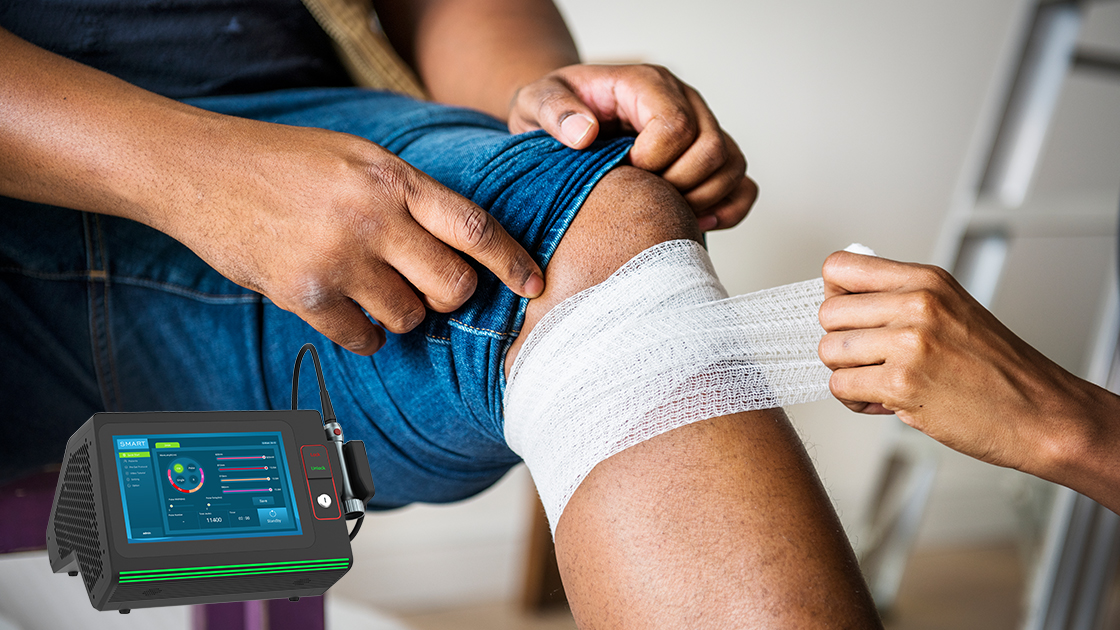Page Contents
Bruises are a common nuisance that can be unsightly and slow to heal. Whether from a minor bump or a more serious injury, the black-and-blue marks can stick around longer than we’d like. While the body naturally heals bruises over time, laser treatment offers a faster way to accelerate the recovery process. Here’s how laser therapy can help bruises heal quicker and more efficiently.
Understanding Bruising: What Happens Under the Skin
Bruises, also known as contusions, occur when trauma damages small blood vessels beneath the skin. Blood leaks into the surrounding tissues, causing discoloration that starts dark and gradually fades as the body reabsorbs it. Depending on the severity, this natural healing process can take anywhere from a few days to several weeks.
The Laser Treatment Process
Laser therapy targets the pooled blood under the skin by using specific wavelengths of light. These lasers penetrate the skin without damaging it, breaking down the trapped blood cells, and promoting faster reabsorption. The treatment also improves circulation in the affected area, reducing inflammation and speeding up healing.
Laser treatment sessions are typically brief, lasting about 15 to 30 minutes depending on the size of the bruise. The procedure is non-invasive and generally painless, with patients often reporting a mild warming sensation. For more severe or larger bruises, a few sessions might be needed, but noticeable improvements can often be seen after just one treatment.
Benefits of Laser Treatment for Bruise Recovery
One of the key benefits of laser therapy is its ability to drastically reduce healing time. Instead of waiting weeks for a bruise to fade naturally, laser treatment can cut down the recovery time to just a few days. This can be especially valuable for people who need to minimize visible bruising quickly, such as those recovering from surgery or cosmetic procedures, or athletes eager to get back in action.
In addition to faster healing, laser treatment also helps reduce pain and inflammation caused by bruising. By improving circulation and stimulating tissue repair, the therapy relieves discomfort and swelling. The process is safe, non-invasive, and requires no downtime, making it an excellent option for those seeking quicker recovery without the risks of more invasive procedures.
When to Consider Laser Treatment for Bruising Recovery
While minor bruises typically heal on their own without intervention, laser therapy can be particularly beneficial for larger or more persistent bruises. If you have significant bruising after surgery, a cosmetic procedure, or a sports injury, laser therapy can help minimize its appearance and accelerate recovery. It’s also an ideal option for individuals who bruise easily or have conditions that affect their healing process, such as blood disorders.
Consulting a healthcare provider can help determine if laser treatment is the right choice for you, especially if you’re dealing with a stubborn bruise that won’t go away or is particularly painful.
Laser Therapy vs. Natural Healing: What’s the Difference?
While bruises naturally heal over time, laser therapy provides a faster alternative. Without treatment, bruises may take weeks to heal, but laser therapy can significantly shorten this period. The procedure helps break down the blood beneath the skin faster, speeding up reabsorption and promoting quicker recovery.
Moreover, laser treatment can help prevent long-term skin discoloration that sometimes remains after a bruise heals. By breaking down the blood cells more efficiently, the therapy reduces the risk of lasting stains under the skin.
In summary, laser therapy offers an effective, non-invasive solution for speeding up bruise recovery. It not only reduces healing time but also helps alleviate pain and inflammation, making it an attractive option for those who want quicker results than natural healing alone can offer.
